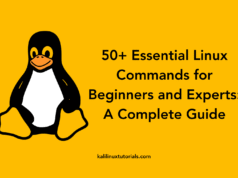Explore the cutting-edge DataComp-LM (DCLM) framework, designed to empower researchers and developers with the tools to construct and optimize large language models using diverse datasets.
DCLM integrates comprehensive data handling procedures and scalable model training techniques, setting new benchmarks in efficiency and performance in the field of artificial intelligence.
Table Of Contents
- Introduction
- Leaderboard
- Getting Started
- Selecting Raw Sources
- Processing the Data
- Deduplication
- Tokenize and Shuffle
- Model Training
- Evaluation
- Submission
- Contributing
- How to Cite Us
- License
Introduction
DataComp-LM (DCLM) is a comprehensive framework designed for building and training large language models (LLMs) with diverse datasets.
It offers a standardized corpus of over 300T unfiltered tokens from CommonCrawl, effective pretraining recipes based on the open_lm framework, and an extensive suite of over 50 evaluations.
This repository provides tools and guidelines for processing raw data, tokenizing, shuffling, training models, and evaluating their performance.
DCLM enables researchers to experiment with various dataset construction strategies across different compute scales, from 411M to 7B parameter models.
Our baseline experiments show significant improvements in model performance through optimized dataset design.
Already, DCLM has enabled the creation of several high quality datasets that perform well across scales and outperform all open datasets.
Submission Workflow:
- (A) A participant chooses a scale, where larger scales reflect more target training tokens and/or model parameters.
- The smallest scale is 400m-1x, a 400m parameter model trained compute optimally (1x), and the largest scale is 7B-2x, a 7B parameter model trained with twice the tokens required for compute optimallity.
- (B) A participant filters a pool of data (filtering track) or mixes data of their own (bring your own data track) to create a dataset.
- (C) Using the curated dataset, a participant trains a language model, with standardized training code and scale-specific hyperparameters, which is then
- (D) evaluated on 53 downstream tasks to judge dataset quality.
For more information click here.










.webp)





